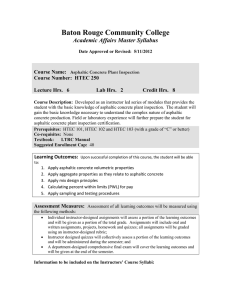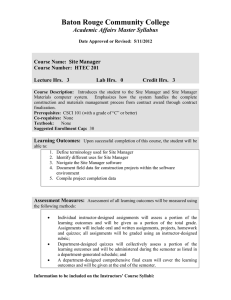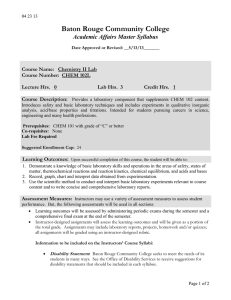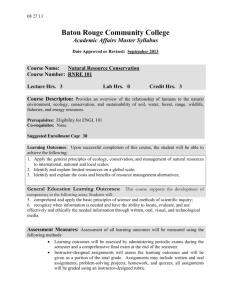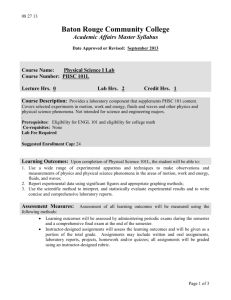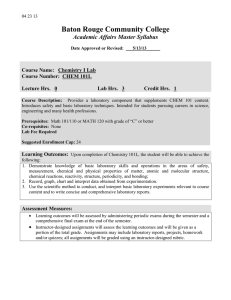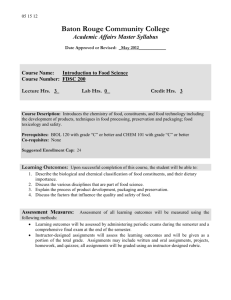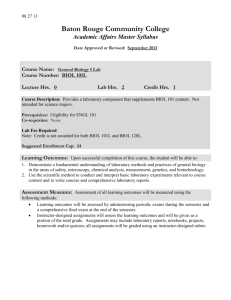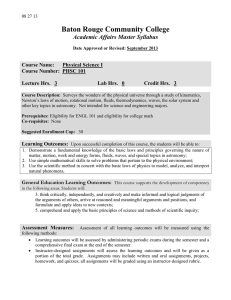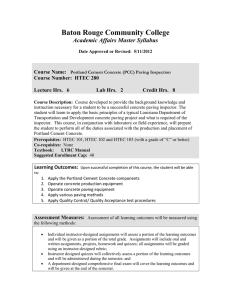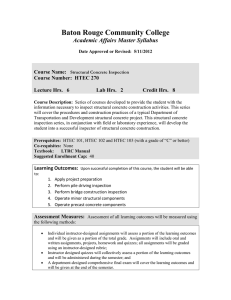Baton Rouge Community College Academic Affairs Master Syllabus Course Name:
advertisement
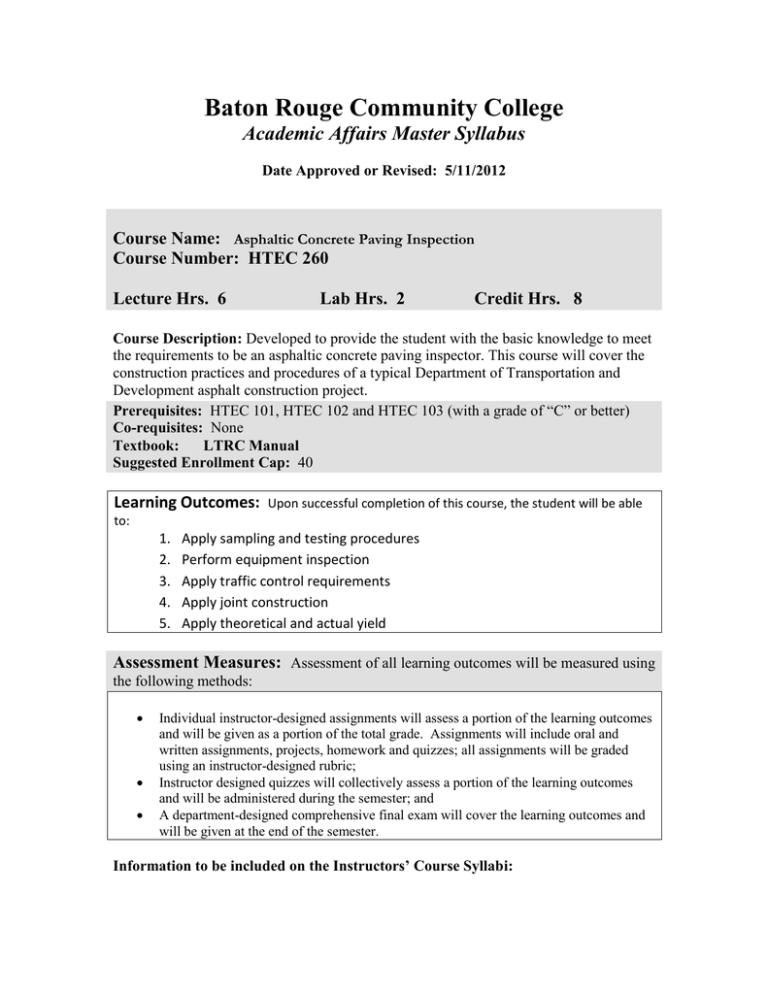
Baton Rouge Community College Academic Affairs Master Syllabus Date Approved or Revised: 5/11/2012 Course Name: Asphaltic Concrete Paving Inspection Course Number: HTEC 260 Lecture Hrs. 6 Lab Hrs. 2 Credit Hrs. 8 Course Description: Developed to provide the student with the basic knowledge to meet the requirements to be an asphaltic concrete paving inspector. This course will cover the construction practices and procedures of a typical Department of Transportation and Development asphalt construction project. Prerequisites: HTEC 101, HTEC 102 and HTEC 103 (with a grade of “C” or better) Co-requisites: None Textbook: LTRC Manual Suggested Enrollment Cap: 40 Learning Outcomes: Upon successful completion of this course, the student will be able to: 1. 2. 3. 4. 5. Apply sampling and testing procedures Perform equipment inspection Apply traffic control requirements Apply joint construction Apply theoretical and actual yield Assessment Measures: Assessment of all learning outcomes will be measured using the following methods: Individual instructor-designed assignments will assess a portion of the learning outcomes and will be given as a portion of the total grade. Assignments will include oral and written assignments, projects, homework and quizzes; all assignments will be graded using an instructor-designed rubric; Instructor designed quizzes will collectively assess a portion of the learning outcomes and will be administered during the semester; and A department-designed comprehensive final exam will cover the learning outcomes and will be given at the end of the semester. Information to be included on the Instructors’ Course Syllabi: Disability Statement: Baton Rouge Community College seeks to meet the needs of its students in many ways. See the Office of Disability Services to receive suggestions for disability statements that should be included in each syllabus. Grading: The College grading policy should be included in the course syllabus. Any special practices should also go here. This should include the instructor’s and/or the department’s policy for make-up work. For example in a speech course, “Speeches not given on due date will receive no grade higher than a sixty” or “Make-up work will not be accepted after the last day of class.” Attendance Policy: Include the overall attendance policy of the college. Instructors may want to add additional information in individual syllabi to meet the needs of their courses. General Policies: Instructors’ policy on the use of things such as beepers and cell phones and/or hand held programmable calculators should be covered in this section. Cheating and Plagiarism: This must be included in all syllabi and should include the penalties for incidents in a given class. Students should have a clear idea of what constitutes cheating in a given course. Safety Concerns: In some programs this may be a major issue. For example, “No student will be allowed in the safety lab without safety glasses.” General statements such as, “Items that may be harmful to one’s self or others should not be brought to class.” Library/ Learning Resources: Since the development of the total person is part of our mission, assignments in the library and/or the Learning Resources Center should be included to assist students in enhancing skills and in using resources. Students should be encouraged to use the library for reading enjoyment as part of lifelong learning. Expanded Course Outline: ASPHALTIC CONCRETE PAVING CERTIFICATION AREA Qualifies inspectors to perform complete inspection and acceptance on asphaltic concrete paving projects. Topics tested include: Specifications Department Policies and Procedures Traffic Control Sampling Procedures Testing Procedures o Mat Thickness o Joint Smoothness o Rideability Visual Inspection of Material at Delivery and In-place Yield - Theoretical and Actual Equipment Inspection Troubleshooting Determination of Percent Pay Documentation
